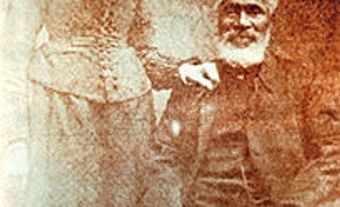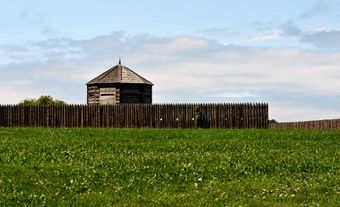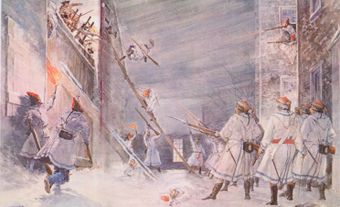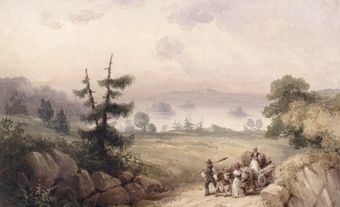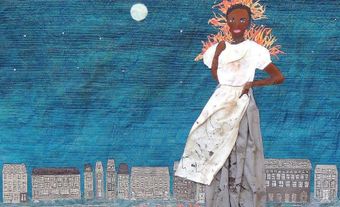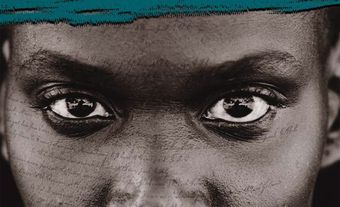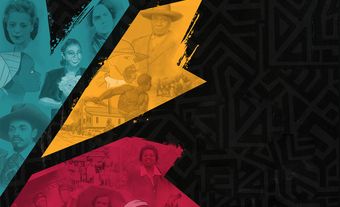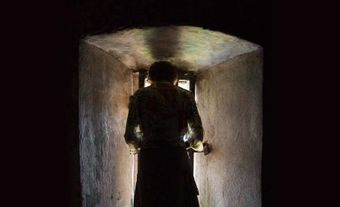Thomas Peters (also Petters), Black community leader, soldier (born circa 1738 in West Africa; died 25 June 1792 in Freetown, Sierra Leone). During the American Revolution, Peters escaped enslavement and joined the Black Pioneers, a unit of the British army. After the war, he and thousands of other Black Loyalists were transported to Nova Scotia and New Brunswick. Peters became a spokesperson for Black Loyalists, who were frustrated that they hadn’t received the provisions and land promised by British officials. He eventually helped recruit Black settlers for the West African colony of Sierra Leone, where he died in 1792.
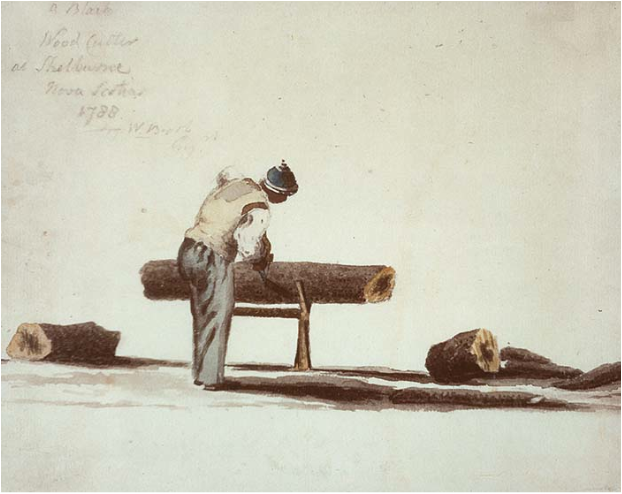
Early Life
Thomas Peters was born around 1738 in what is now Nigeria; he was captured and transported to North America around 1760 as part of the transatlantic slave trade. Some sources indicate he was first enslaved in French Louisiana. By 1776, he had been sold to William Campbell in Wilmington, North Carolina.
American Revolution
During the American Revolution, Britain promised freedom and equality to rebel-owned enslaved persons who joined the Loyalist cause. Thousands responded, including Peters, who escaped Campbell’s plantation in 1776 and joined the Black Pioneers, eventually gaining the rank of sergeant. The Pioneers were not combatants but performed engineering and construction duties during the war.
In 1783, following the British defeat, approximately 3,500 Black Loyalists were transported to Nova Scotia and New Brunswick (which became a separate colony in 1784). Among them were Peters, his wife Sally (Salley), and their children Clairy (Clara) and John. The family settled near Digby, Annapolis County, Nova Scotia, along with about 200 other former Pioneers.
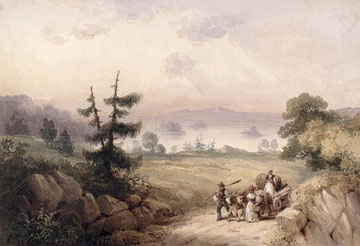
Spokesman for Black Loyalists
Thomas Peters soon became a spokesperson for Black Loyalists in Annapolis County, who had been promised (but not received) land grants and three years’ worth of provisions. In 1784, he and another Pioneer sergeant, Murphy Still (Steele), petitioned the governor of Nova Scotia, John Parr, for land on behalf of Black Loyalists in Digby. Eventually, Peters and 75 other households were given one-acre lots in Brindley Town, but these were not fertile enough for subsistence farming. In 1785, Peters petitioned the governor of New Brunswick, Thomas Carleton, for farms for the Black Loyalists of Annapolis County. His petition failed.
By 1790, the British promises of equality remained unfulfilled. Approximately 200 Black Loyalists in Annapolis County, Nova Scotia, and Saint John, New Brunswick, chose Peters to present their case before the Crown. He travelled to London in 1790 with petitions outlining their grievances, including denial of the vote, trial by jury and equitable land grants. There, he met British abolitionist Granville Sharp, who arranged for Peters to present his petition to the government.
Sierra Leone
While in London, abolitionist Granville Sharp also introduced Thomas Peters to directors of the Sierra Leone Company, whose colony for free Blacks in West Africa was seeking settlers. Peters returned to North America with a government-financed scheme offering free land and independence in Sierra Leone. In January 1792, almost 1,200 blacks sailed from Halifax to Africa, where they founded Freetown. About one-third had been recruited by Peters.
Meanwhile, administrative reforms turned Lieutenant John Clarkson, the official agent for the migration, into a colonial governor with an appointed white council. Peters led an opposition movement against the new system but died of "the fever" before achieving concrete results. Surviving members of the migration went on to develop Freetown as a commercial and political capital, where their descendants are still known as "Nova Scotians" and Thomas Peters is remembered as a courageous pioneer and leader.

 Share on Facebook
Share on Facebook Share on X
Share on X Share by Email
Share by Email Share on Google Classroom
Share on Google Classroom

